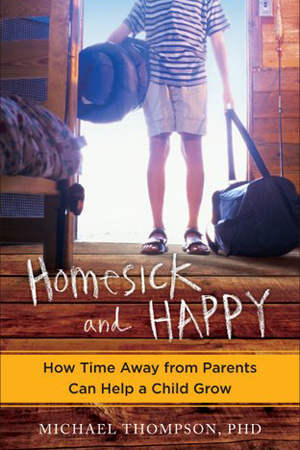Bullying is getting a lot of attention these days -- and it should. Kids should not have to suffer in school, should not be afraid of their peers. (See this
post for more about the film & study guide).
On Tuesday, MPBN aired a
call-in show featuring Maine educators and a student and there was an interesting conversation about the nuances of bullying.
Stan Davis, a well known anti-bullying speaker, argued that they were moving away from even the term "bully" because it overly implies intent and overlooks all the ways that kids might engage in mean or threatening behaviors without fully understanding their own power.
I think all of this is so important to know about, to talk about and to prevent. I also, though, appreciated what I learned in
Michael Thompson's Best Friends/Worst Enemies: not all mean behavior, not all relationship conflicts are high-stakes and require adult intervention. Parents and teachers can emphasize kindness and compassion but also remind kids that they are resilient and ok; sometimes we can do this best by providing indirect comfort rather than drilling into the details of the upsetting moment (this requires self-restraint, requires being ok with not knowing all that happens in our kids daily lives).
From PBS :
What Parents Can Do, Secrets of Social Life, Going to School
Interview for coping, instead of pain. When children experience social rejection, we often experience it with them. But it doesn't help when you dwell on it by asking excessive questions, or trying to figure it out for them. Instead of "interviewing for pain," ask what they've done to solve the situation, compliment their efforts, and let your child know you are there. Keep in mind that best friends will get along, fight bitterly, and make up faster than adults. They are simply more flexible and resilient. (Michael Thompson)
I do remember how lovely it was to confide in my nana, a woman who had experienced some truly difficult moments. She loved me to pieces, let me talk and have my cry, then usually turned on the tv or pulled out the cards. She didn't fix anything, didn't ask again, didn't shame me, didn't worry about me and that message that a bit of a bad day was a normal part of life was very helpful!
As all the media about bullying builds, it can be hard for parents to discern -- What if our child is being bullied? What if our child bullies someone else? As important, however, is to understand how to support ordinary hurts, ordinary conflicts, ordinary friendships.
On May 2nd,
Michael Thompson will speak at USM's Hannaford Hall and help us understand the elements that separate a crisis from a bad day, and the school and community conditions under which children's friendships have space to thrive, sustain challenges, and even break apart without endangering the individuals involved.
(Thompson will offer a workshop on parent-teacher communication earlier in the day;
register here! )



 $61.30
$61.30  927
927

